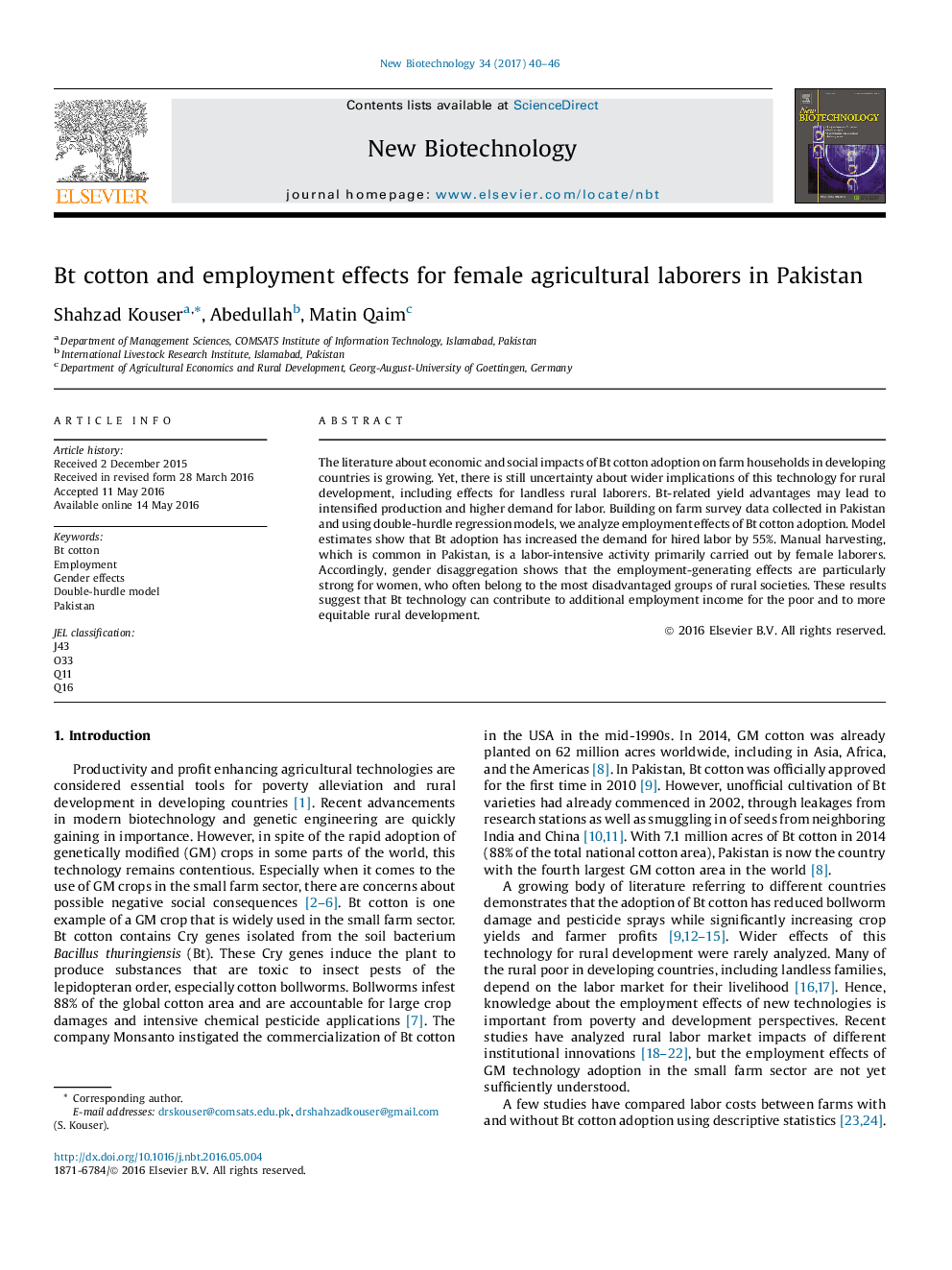| Article ID | Journal | Published Year | Pages | File Type |
|---|---|---|---|---|
| 4754955 | New Biotechnology | 2017 | 7 Pages |
â¢Employment effects of Bt cotton adoption are analyzed in Pakistan.â¢Farm survey data and a double-hurdle model with instruments are used.â¢Bt adoption has increased the demand for hired labor by 55%.â¢Most of this increase is due to higher yields to be harvested.â¢Gains in employment income are particularly large for female laborers.
The literature about economic and social impacts of Bt cotton adoption on farm households in developing countries is growing. Yet, there is still uncertainty about wider implications of this technology for rural development, including effects for landless rural laborers. Bt-related yield advantages may lead to intensified production and higher demand for labor. Building on farm survey data collected in Pakistan and using double-hurdle regression models, we analyze employment effects of Bt cotton adoption. Model estimates show that Bt adoption has increased the demand for hired labor by 55%. Manual harvesting, which is common in Pakistan, is a labor-intensive activity primarily carried out by female laborers. Accordingly, gender disaggregation shows that the employment-generating effects are particularly strong for women, who often belong to the most disadvantaged groups of rural societies. These results suggest that Bt technology can contribute to additional employment income for the poor and to more equitable rural development.
